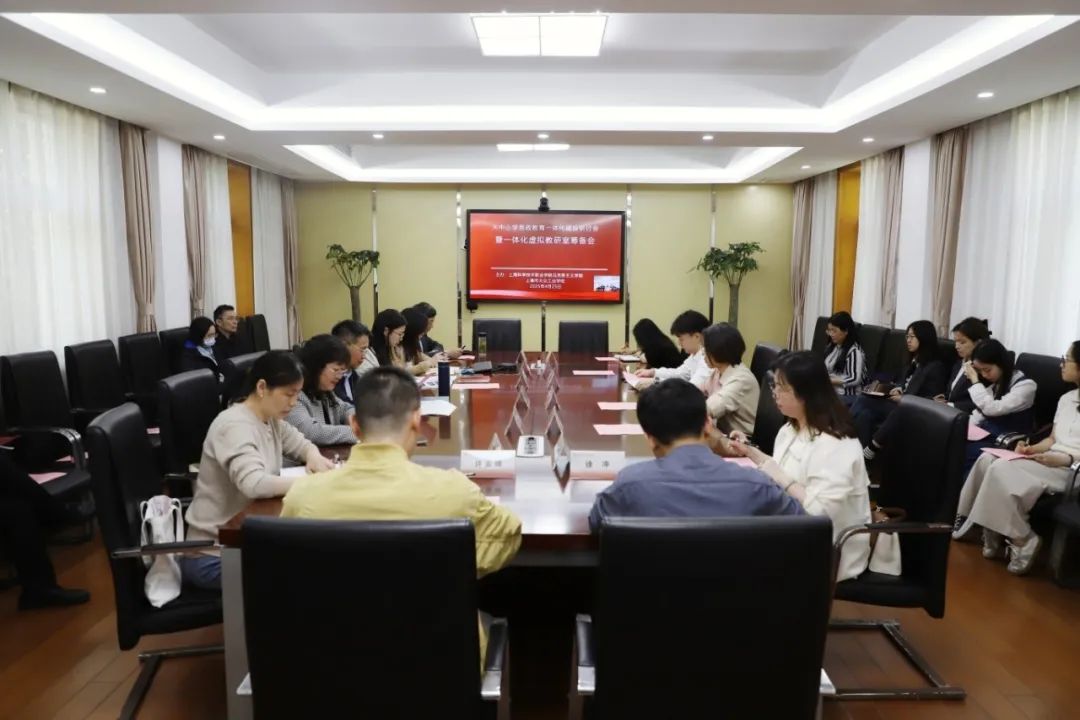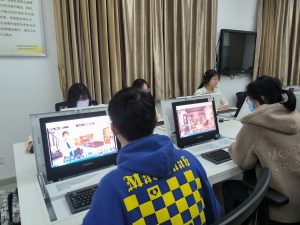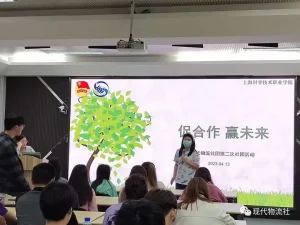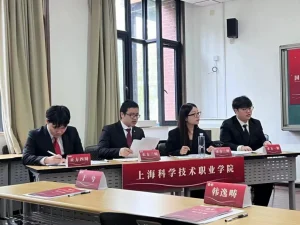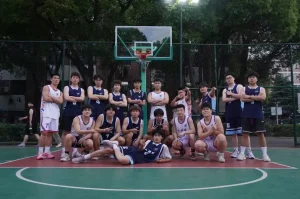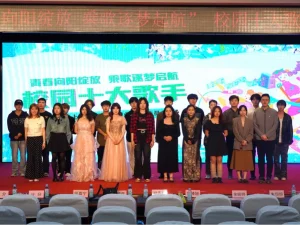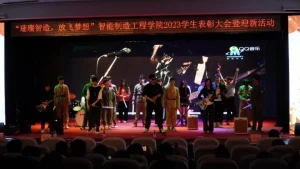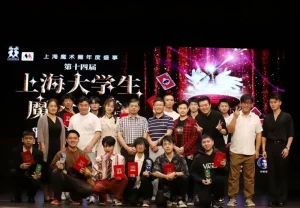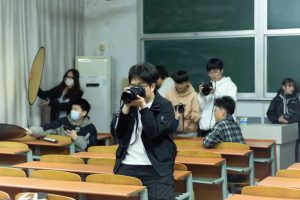On the afternoon of April 25, 2025, the Seminar on Integrated Ideological and Political Education Across Universities, Secondary, and Primary Schools, along with the Preparatory Meeting for the Integrated Virtual Teaching and Research Office, was successfully held at Shanghai College of Science and Technology. Experts and leaders from institutions including Shanghai University of Sport, Shanghai Industrial and Commercial Polytechnic, Qiliang Middle School of Jiading District, Jiading Elementary School, and Jiading Museum gathered to explore the charter for the integrated virtual teaching and research office and discuss new approaches to ideological and political education integration in the new era. Yang Yiming, CPC Committee Member and Vice President of the college, attended and delivered remarks. The seminar was hosted by Wang Yina, Dean of the School of Marxism at the college.
In his speech, Yang Yiming emphasized that ideological and political education is a key component in fulfilling the fundamental mission of moral education. Promoting integrated education across school levels requires breaking down barriers between educational stages to form a collaborative teaching system. He highlighted that the seminar’s core task was to discuss the Charter for the Integrated Virtual Teaching and Research Office for Ideological and Political Education, centered on the principles of “co-construction and sharing, rotational coordination, and innovative development” to build a cross-level teaching and research community. He shared three key points: first, to build consensus and enhance synergy; second, to drive innovation through technology; and third, to promote openness and share high-quality resources, offering valuable insights for integrated ideological and political education.

Gao Xiaoli, Deputy Dean of the School of Marxism at Shanghai University of Sport, shared the university’s practices in building its School of Marxism, reforming ideological and political courses, and promoting integrated development across educational levels, proposing a “Five Ones” model as a reference. Wang Yina provided an in-depth interpretation of the Draft Charter, outlining core tasks such as developing integrated lesson plans, organizing red-themed experiential learning, sharing teacher training resources, and fostering innovation in teaching and research. The integrated virtual office is envisioned to operate through a rotational leadership system and dynamic collaboration mechanisms, serving as a regional engine to connect ideological and political education across different educational levels.

Cao Biwen, Dean of the School of Marxism at Shanghai Industrial and Commercial Polytechnic, proposed a “Seven Ones” construction plan for the virtual office. Ding Caixia, Deputy Dean of the School of Marxism at Tianhua College of Shanghai Normal University, suggested building a long-term mechanism through resource sharing and research collaboration to ensure sustainable cross-level cooperation. Wang Yali, Deputy Secretary of the Party Committee at Shanghai Dazhong Industrial School, noted that vocational schools often represent a weak link in integration and should leverage industry-education integration and vocational education characteristics to participate in virtual office development. Representatives from several vocational, secondary, and elementary schools, along with the Party Committee of the School of Communication and Electronic Engineering, offered insightful ideas and suggestions tailored to their contexts. Jiading Museum and Jiading Urban Planning Exhibition Hall proposed building a “Big Ideological and Political Class” experiential learning base. Chaoxing Fanya Group showcased applications of digital technologies such as AI-powered student analytics, AI teaching assistants, and virtual simulation in ideological and political course reform.
The seminar featured in-depth discussions on the charter, reaching multiple consensuses. The next steps include signing cooperative agreements, finalizing the charter, building the virtual platform, and launching joint activities. This collaborative initiative aims to reshape the ecosystem of ideological and political education with digital technology, foster integrated teaching and research across all educational levels, and create a shared ideological education framework. Through innovation and synergy, the initiative seeks to pass on the torch of thought from one stage to the next, supporting the cultivation of a new generation prepared to shoulder the task of national rejuvenation.
Attendees included leaders and representatives from the School of Marxism at Shanghai University of Sport, Tianhua College of Shanghai Normal University, Shanghai Industrial and Commercial Polytechnic, Shanghai Dazhong Industrial School, Shanghai Economic Management School, Shanghai Information Technology School, Shanghai Qunxing Vocational School, Shanghai Second Light Industry School, Qiliang Middle School of Jiading District, Jiading Elementary School, Jiading Museum, Jiading Urban Planning Exhibition Hall, Chaoxing Fanya Group, the School of Marxism and the Party Committee of the School of Communication and Electronic Engineering at Shanghai College of Science and Technology.

